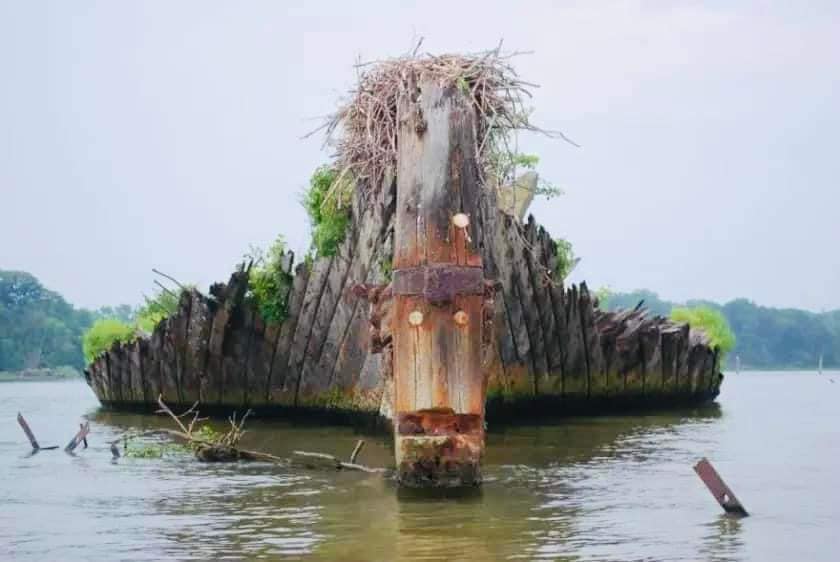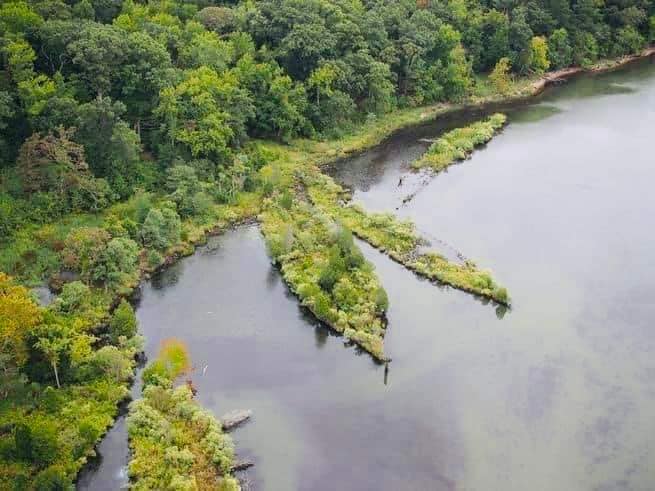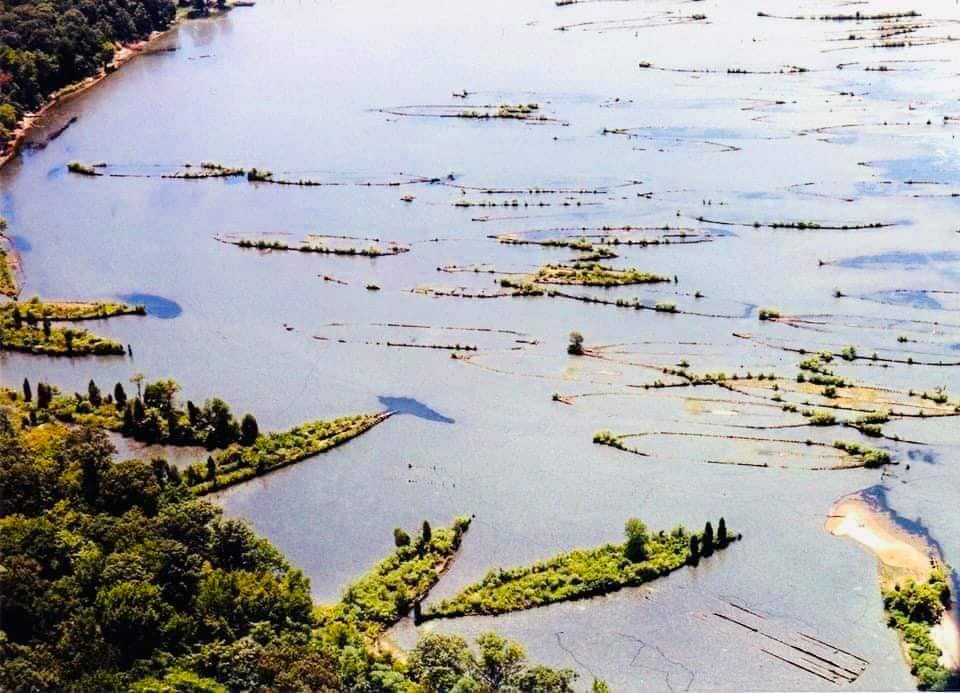The enigmatic allure of Mallows Bay beckons adventurers and history enthusiasts alike, drawing them into the mystique of its sunken treasures. Aptly dubbed the “Ghost Fleet,” this haunting moniker nods to the spectral presence of the hundreds of ships interred beneath the tranquil surface of its waters.
Within the embrace of Mallows Bay lie the remnants of 230 vessels belonging to the United States Shipping Board Merchant Fleet Corporation, a poignant testament to bygone eras of maritime grandeur and industrial ambition. Among these maritime relics, more than a hundred are wooden steamships, conceived amidst the exigencies of World War I. Crafted from timber due to the scarcity of steel, these vessels were conceived to traverse the perilous expanse of the Atlantic, only to find themselves relegated to obsolescence upon the war’s conclusion and now an amazing destination for inshore fishing.
The fate of these ships took a twist when the U.S. Navy, burdened by their upkeep costs of $50,000 per month, sought to divest itself of the burden. Enter the Western Marine & Salvage Company, which acquired the vessels and orchestrated their relocation to the Potomac River at Widewater, Virginia, before eventually towing them to their final resting place in Mallows Bay in 1925. However, the company’s fortunes soured, leading to bankruptcy, and the ships, forsaken, were consigned to the flames, left to languish where they lay.
Yet, Mallows Bay’s maritime graveyard would not remain dormant forever. With the onset of World War II, Bethlehem Steel seized upon the opportunity to reclaim the metals ensconced within the derelict hulls, erecting a salvage basin to facilitate the endeavor. Amidst the hulking remains of these vessels, wrecks of assorted civilian boats stand as silent witnesses to the passage of time, adding further layers to the bay’s storied tapestry.
Today, Mallows Bay Park, nestled along 1440 Wilson Landing Road in Nanjemoy, Maryland, serves as the gateway to this nautical necropolis. A 0.8-mile trail meanders through the park and the salvage basin, offering visitors a glimpse into the past while navigating the present. In 2010, the addition of a boat ramp and pier expanded recreational opportunities, affording access to the Potomac River and the submerged relics beyond. Canoeing and kayaking enthusiasts revel in the opportunity to ply these waters, where the sunken ships form a spectral reef teeming with a diverse array of marine life.
In recognition of its historical and archaeological significance, Mallows Bay attained the prestigious designation of an archaeological and historic district on the National Register of Historic Places in 2015. Further cementing its legacy, the bay was crowned with the esteemed title of National Marine Sanctuary in September 2019, enshrining its importance for future generations to cherish and explore.
Among the myriad spectacles gracing Mallows Bay, the S.S. Accomac stands as a venerable sentinel, its weathered hull bearing witness to the ebb and flow of time. As visitors traverse these hallowed waters, they are not merely observers but participants in a timeless saga, where the past intertwines with the present, beckoning all who dare to embark on a voyage through history’s watery depths.


